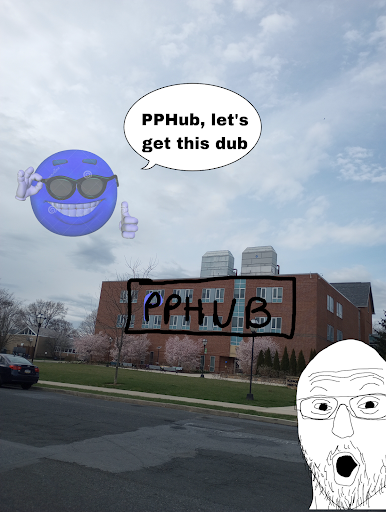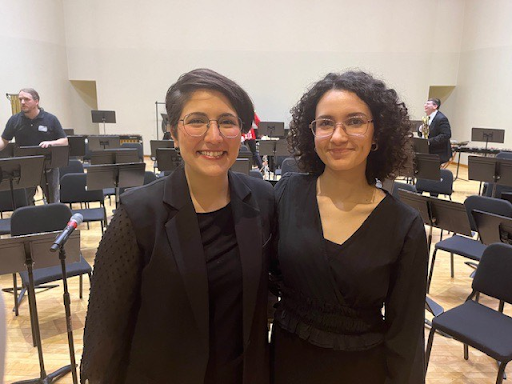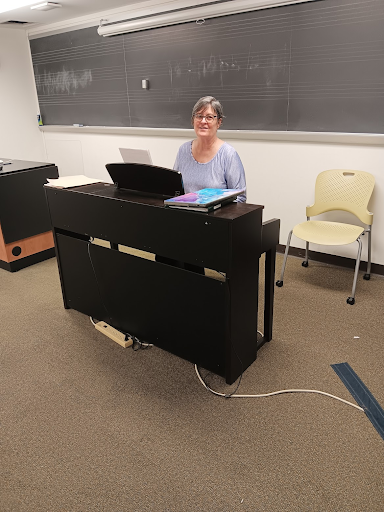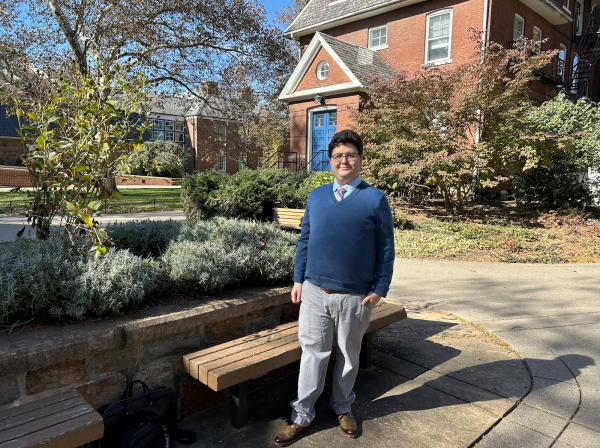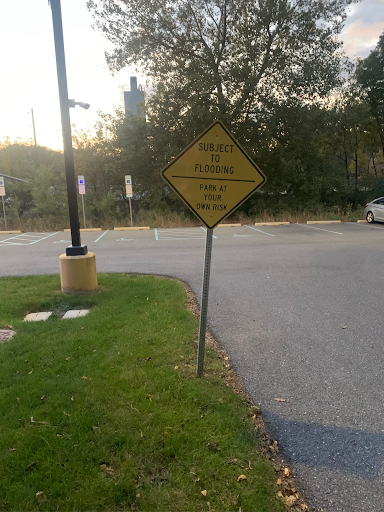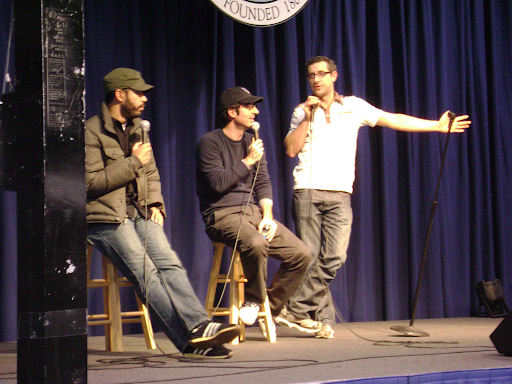Professor Spotlight: Christopher Jones
Dr. Christopher Jones is department chair and professor of biology at Moravian College. He received his B.A. in biology and Russian from Haverford College and his M.Phil. and Ph.D in molecular biophysics and biochemistry from Yale University.
What inspired you to go into your field of study?
I would have to say it was a somewhat twisted high school biology teacher whose sense of humor aligned well with my own outlook. I liked him a lot, I liked the subject, and I was pretty good at it. I still wonder if I’m good at the sorts of things I need to do as a biologist naturally, or if I’ve become good at them because I’ve been interested in biology. It’s a bit like solving a puzzle. You need to be organized and thorough and sort of obsessive-compulsive to some degree, and that works for me.
What research are you currently working on?
Currently, I am looking at mutations in fruit flies that cause them to have seizures. So, just like in people and in other animals, fruit flies do or can have seizures. They have a complex nervous system that allows for this. And so my laboratory students are looking at different genes that we’ve identified that, when mutated, when changed from the normal version, cause the fruit flies to have seizures when you bang the container that they’re in.
What do you think is the most recent important development in your field of study?
Well, [a] massively important [development] would be what’s called CRISPR technology, [which] is a technique, that, like many very, very powerful techniques in biology, began by scientists poking around at stupid stuff that nobody would have any interest in because it’s dumb and golly, look! A multi-billion [dollar] industry has risen out of scientists poking around! CRISPR particularly has enabled people, clinicians ultimately, to alter — to fix — genetic defects in any organism, in theory, that we want. And so the potential that it holds for human genetic diseases is off the charts.
What job would you have if you couldn’t be a professor, regardless of salary and job outcome? Why?
If I changed fields completely, I’d probably want to go into graphic design or computer programming or something like that, which weren’t really options when I was up and coming. I graduated college in 1981 and of course the Mac and personal computers [came out in] 1984, so I just missed that boat.
What do you know now that you wished you knew when you were in college?
Something that I’d say that I know now that is very important that I did not, I suspect, fully appreciate when I was in college is the importance of personal honor, keeping your word, and fulfilling obligations to yourself and others. I think I took this a bit casually, cutting corners and I didn’t go to class when I should have, and I regret that now.
What is your biggest student pet peeve?
There are so very many. Students who don’t pay attention. And I tell students, it’s very hard, I get that, it’s very hard to pay attention for fifty minutes, particularly if it’s boring to you. Also, [I get annoyed when students don’t] take things seriously enough at the right times. Students freak out about two points on an exam or what’s going to be on the test. I have fun with what I do. I joke, not always well, but I do, and there’s a place for that. But at the same time, fundamentally, at base, no matter how much I joke, it’s important, it’s serious, and you can joke about it and still pay attention and be serious about something. And I think a lot of students haven’t developed that yet in some sense. I’d probably go with that as number one.
What was the last streaming show you binge-watched or the last good book you read?
I’ve never binge-watched a show. I haven’t owned a television for decades. And I don’t have Hulu or Netflix or anything like that on my computer. What was the last book that I read? I frankly don’t remember. I read other things now. I did reread Friedrich Dürrenmatt’s The Visit, and I’m thinking about possibly staging that [play] at some point.
What is something interesting about you that most people don’t know?
When I first came to Moravian, I did not own any Hawaiian shirts. They were all my dad’s. He died and I cleaned out his closet of all his Hawaiian shirts. But I think people now associate me a lot, in the spring particularly, with the Hawaiian shirts.
What’s your spirit animal and why?
I don’t have a spirit animal to the best of my knowledge. I’m not familiar with that religious tradition enough; I could pick something, but that seems sort of trivializing. [The animal] I identify with is] probably a fox because of the traditional trickster motif, in a lot of mythologies [like] Japanese, for example.
You’re a man of science, but you’re heavily involved in the arts, so what’s that crossover like? What makes you think science and art are a good combination?
Historically, you can go back and there’s a common meme or trope or whatever you want to call it that many scientists like music. I don’t know if that’s really true. I don’t know if anyone’s looked statistically, are scientists more likely to be musically inclined? For me, I got involved in theatre in high school, about the same time I was getting involved in science. It’s work, it’s rewarding, but it’s different from my day job, so in some sense, it’s refreshing. I don’t want to go with that whole goofy left-brain/right-brain thing, because it’s not as simple as that. The two interests complement each other in ways that work for me.




